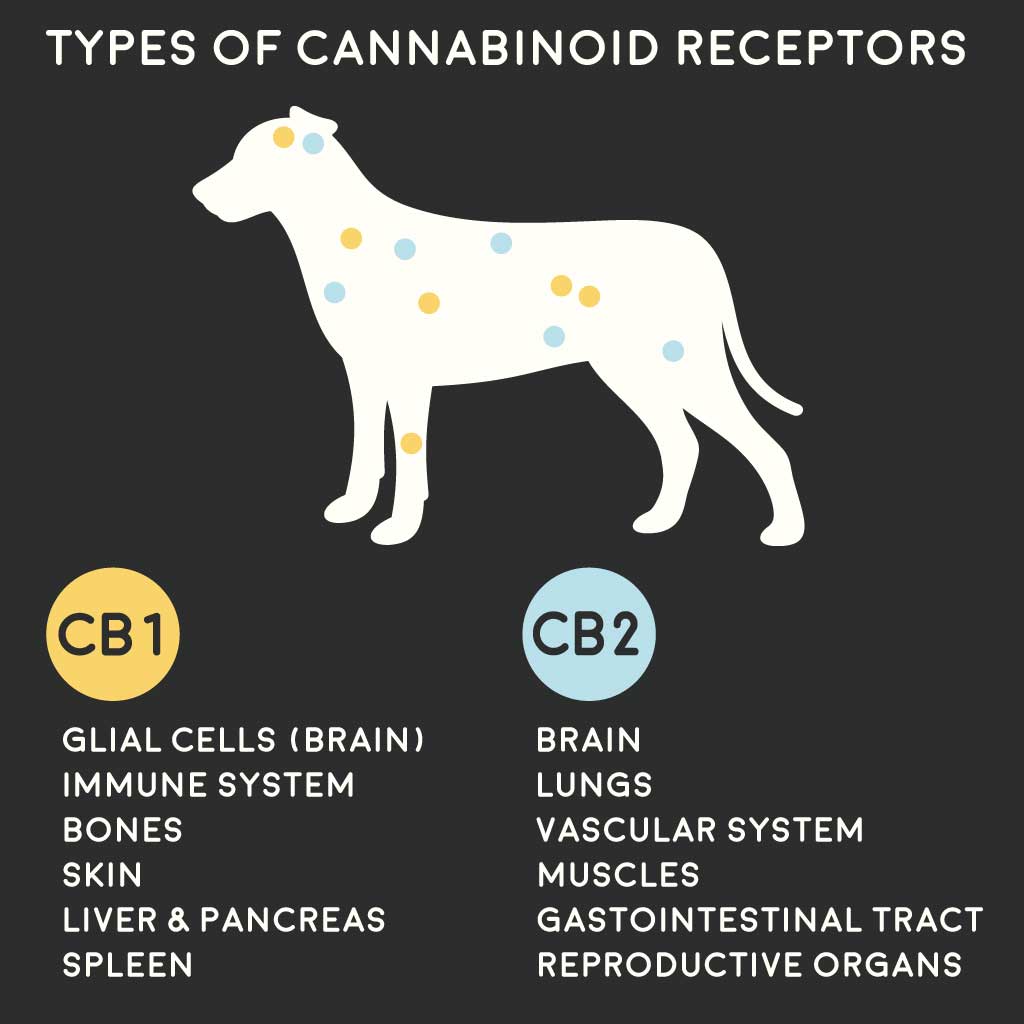The research for hemp and CBD use has been quickly evolving and we now have a growing body of evidence supporting the benefits of CBD in animals. Look below for a listing of current peer-reviewed journal articles looking at CBD safety and dosing for dogs and cats. Additionally, topics covering osteoarthritis, seizures, and even neoplasia (cancer) have been reported on with respect to CBD in canines. A case study in a horse has been published, and safety studies are expected soon with equines. Read on below for more information and remember that our VetCS team is always hereto help you if you have any questions.
Cannabis plants produce over 100+ known cannabinoids, with cannabidiol (CBD) being one of those. THC (primary intoxicating component in cannabis) is also a cannabinoid. Other documented, but less researched cannabinoids include: cannabigerol (CBG), cannabinol (CBN), and cannabichromene (CBC).
All mammals have an endocannabinoid system (ECS) that is activated by substances in our bodies called endocannabinoids. Phytocannabinoids are substances like CBD that are produced by plants and function at the same receptors in the ECS. Based on the location of the receptors in the body, therapeutic targets using CBD and hemp can be employed to gain a beneficial outcome.
VetCS has gathered helpful information on the research of cannabinoid therapy for animals. If you have a question or concern about giving your pet or horse CBD products, please contact our veterinary team.
Pharmacokinetics, Safety, and Clinical Efficacy of Cannabidiol Treatment in Osteoarthritic Dogs
Treatment using Cannabidiol for mechanical allodynia in a horse
Preliminary Investigation of the Safety of Escalating Cannabinoid Doses in Healthy Dogs
Characterization of synovial fluid endocannabinoids in dogs with osteoarthritis
The use of cannabinoids in animals and therapeutic implications for veterinary medicine; a review
